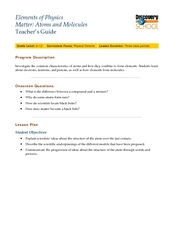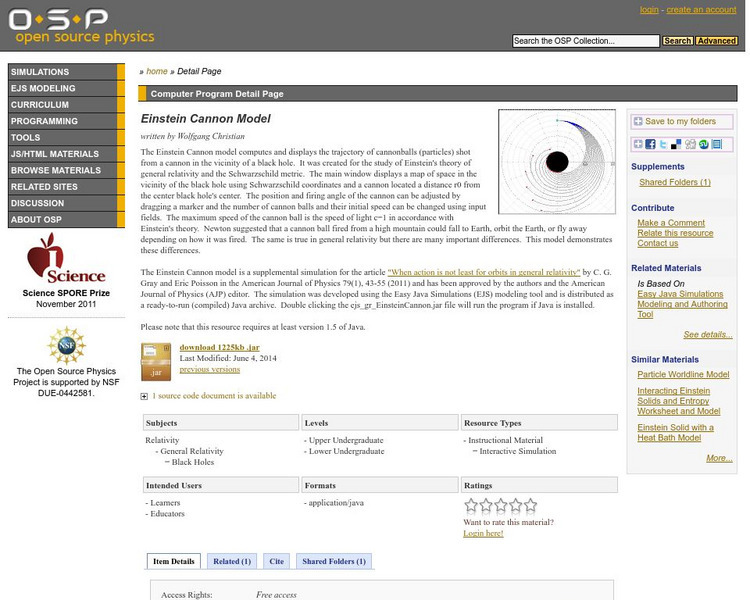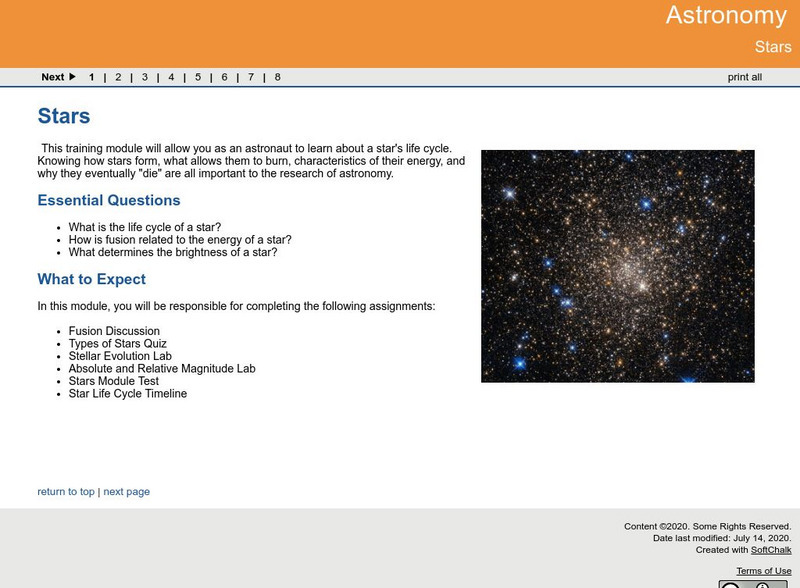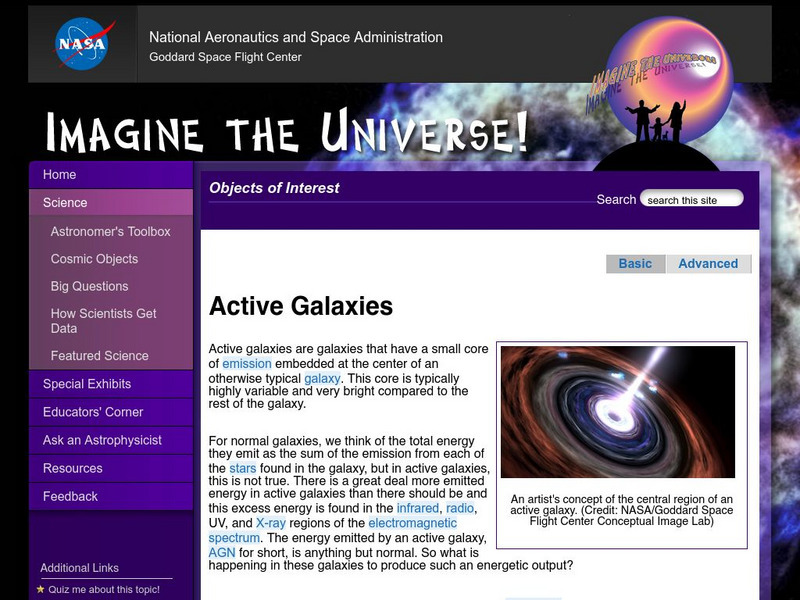Curated OER
Star Facts
Throughout the elementary grades students explore the galaxy. This simple presentation listing the types of stars could be used as a quick review of the information students have learned. It could be augmented with additional information.
Curated OER
Space Science: Adventure is Waiting
These full-color handouts feature two activities. The first is a reading on comets, meteors, and meteoroids. Your space science learners will examine ten phrases and determine which of the three each characterizes. The second activity...
Curated OER
Black Holes
The images in this PowerPoint are really appealing and there are some definitions. However, the information is incomplete, so you would have to either add explanations or use this purely for review. Different types of galaxies are...
Curated OER
Break the Code: Astronomy
Here is a quick puzzle-style worksheet for your aspiring astronomers. A code is printed at the top of the page and learners use it to fill in the blanks describing different phenomena or objects in outer space. The material does not even...
Curated OER
X-Ray
A striking PowerPoint that presents the Yohkoh Telescope, some information about its construction, and the amazing x-ray images of the sun that have been captured. Specific information about the electromagnetic phenomena is given. This...
Curated OER
Galaxies and Stars Scavenger Hunt
In this space worksheet, students identify and describe what auroras are in the sky and why they are made up of different colors. Then they explain why stars are born and what happens to them as they get older. Students also name which...
Curated OER
A Classical & Relativistic Trip to a Black Hole
Students calculate distance, velocity, acceleration and time on their fantasy trip to the black hold. They apply Newton's Laws of Motion and calculate circular motion. They discuss any questions that may arise.
Curated OER
Matter: Atoms and Molecules
Students investigate how information about the atom has been determined. In this atomic structure activity, students draw what they think an atom looks like. They conduct Internet research about the types of atomic models and how...
Curated OER
Astronomy
In this astronomy worksheet, learners complete a word search puzzle by finding 53 astronomy terms such as planets, lunar eclipse, and galaxy.
Curated OER
Black Holes Word Search
In this black holes word search, learners locate terms relating to a black hole. A list of ten words is provided. An answer sheet is available.
Curated OER
Journal of the Stars
Pupils receive balloons representing the "Life Cycle of the Stars." As the attached script is read, students follow the directions for the color of balloon they are given. Pupils chart the results for their star. They plot data from...
Curated OER
Lives of Stars
Students explain in their own words how stars are formed. In this space science lesson plan, students summarize the life cycle of stars. They draw diagrams and label the step of the cycle they represent.
Curated OER
Black Holes: The Ultimate Abyss
Learners compare and contrast the characteristics of the three different types of black holes. In this space science lesson, students research black hole's lifetime, location and evidence of existence. They present their findings to class.
Curated OER
Chandra Spies the Longest Sound Wave in the Universe!
In this black hole worksheet, students use an x-ray image and a sound waves image to determine the size and the wavelength of the sound wave. This worksheet has 3 problems to solve.
Curated OER
Life Cycle of a Star
In this star instructional activity, students review the life cycle of a star by completing a word search and answering 3 short answer questions and 7 true or false questions.
Curated OER
Life Cycle of a Star
In this space science worksheet, students locate 24 words relating to the live cycle of a star in a word search puzzle. They may self correct by selecting the link at the bottom of the page.
National Science Foundation
National Science Foundation: Astronomy and Space: Research Overview
Explore some of our most fundamental questions about space exploration with this research overview collected by scientists at the National Science Foundation. Additionally, experience deep space first-hand with telescope interactives.
Massachusetts Institute of Technology
Mit: Open Course Ware: Courses: Physics: Classical Mechanics
College-level online course highlighting the study of classical mechanics. This course focuses on Newtonian mechanics, fluid mechanics, and kinetic gas theory. Course features include a 35 video lecture series by Walter Lewin. Also link...
American Association of Physics Teachers
Com Padre Digital Library: Open Source Physics: Einstein Cannon Model
The path of cannonballs fired near a black hole are computed using the Schwarzschild metric and presented in this visualization, allowing for study of the theory of general relativity. The cannon's angle and the number and speed of the...
American Association of Physics Teachers
Com Padre Digital Library: Open Source Physics: General Relativity Schwarzschild
Visualization that uses the Schwarzschild metric, showing the orbit light travels near a black hole.
American Association of Physics Teachers
Com Padre Digital Library: Open Source Physics: Particle Worldline Model
Simulation exploring the behavior of particles as they approach a black hole using Schwarzschild coordinates.
Georgia Department of Education
Ga Virtual Learning: Stars
In this interactive module students will explore the life cycle of stars and how they produce energy.
University of Wisconsin
The Why Files: The Known Universe Requires Black Holes!
Models of star formation don't match the true star number. Now see how the black hole restrains news stars so everything adds up.
NASA
Nasa: Imagine the Universe: Active Galaxies and Quasars
Describes quasars as being classified within the category of an active galaxy. A description of the emergence of high-energy. Definitions of key words are provided.gamma-ray quasars as an important component of the gamma-ray sky.
























